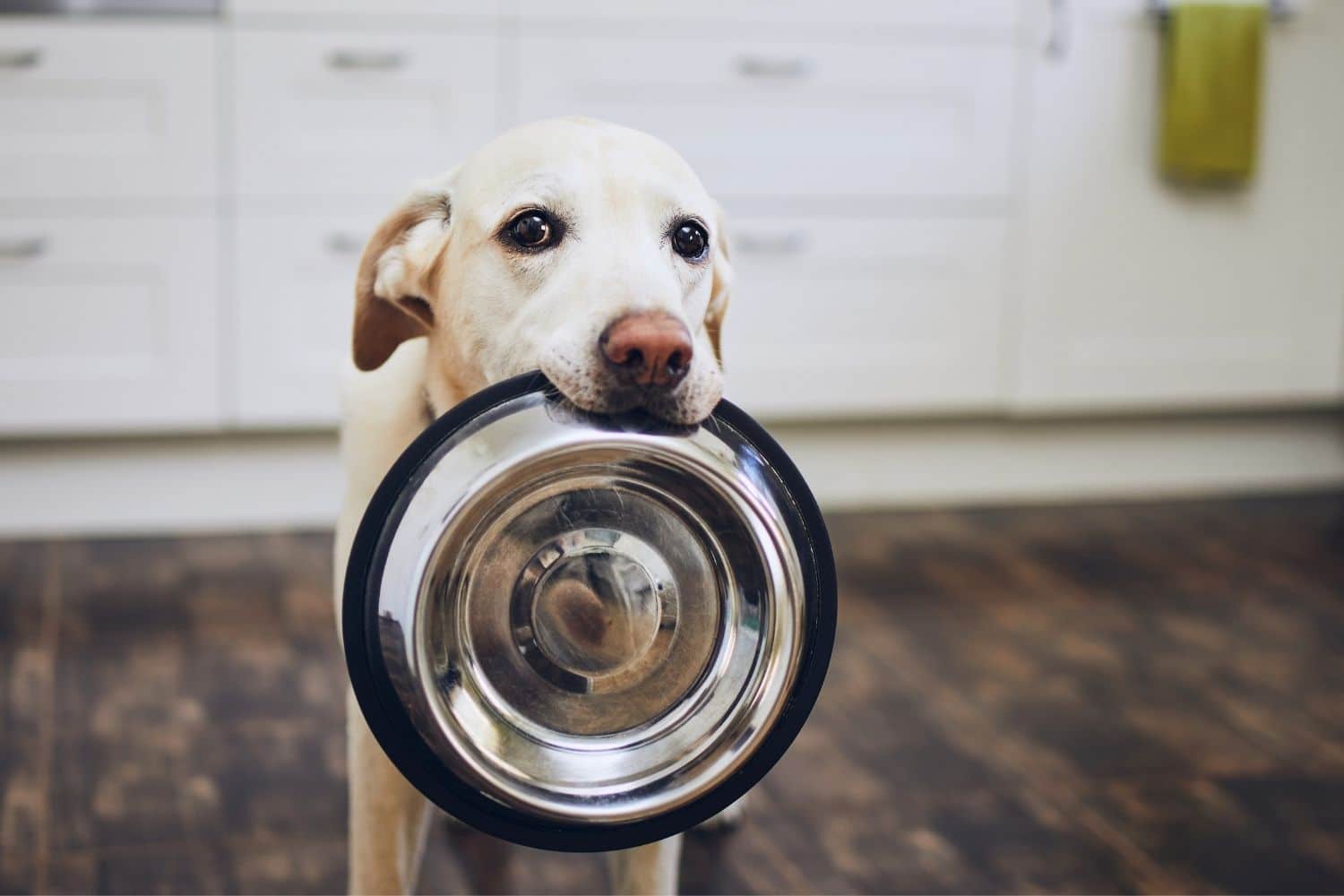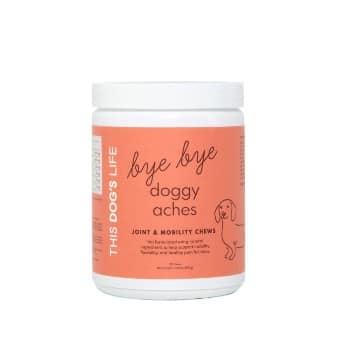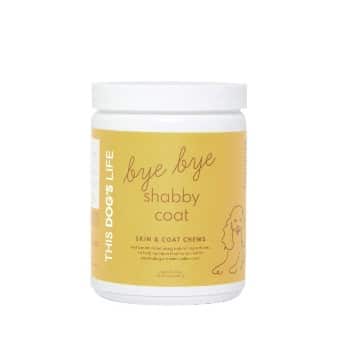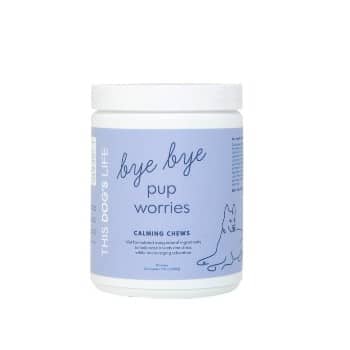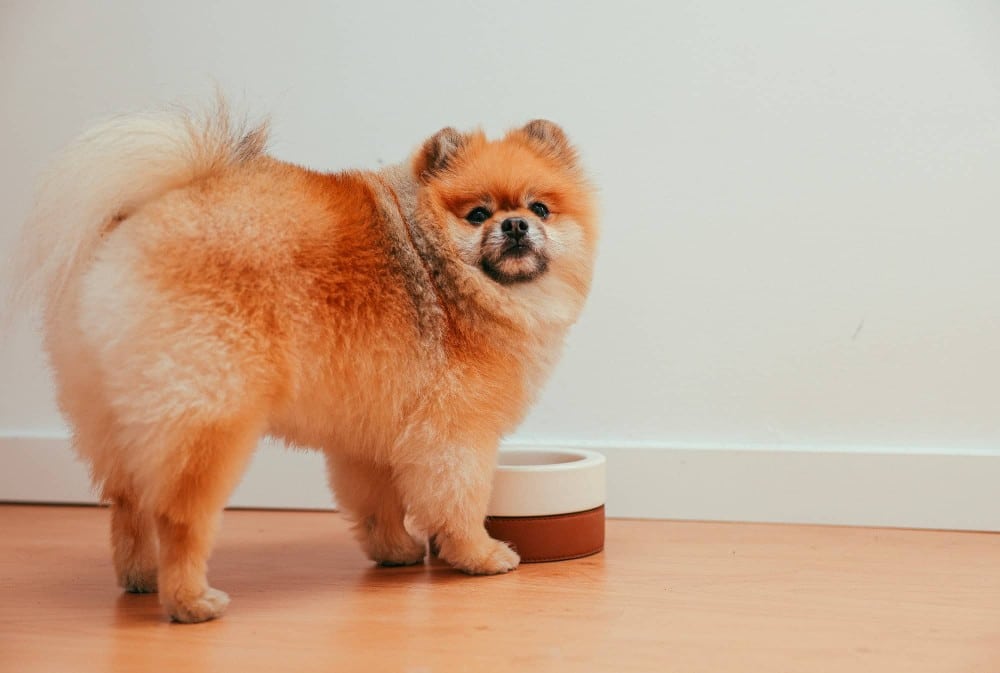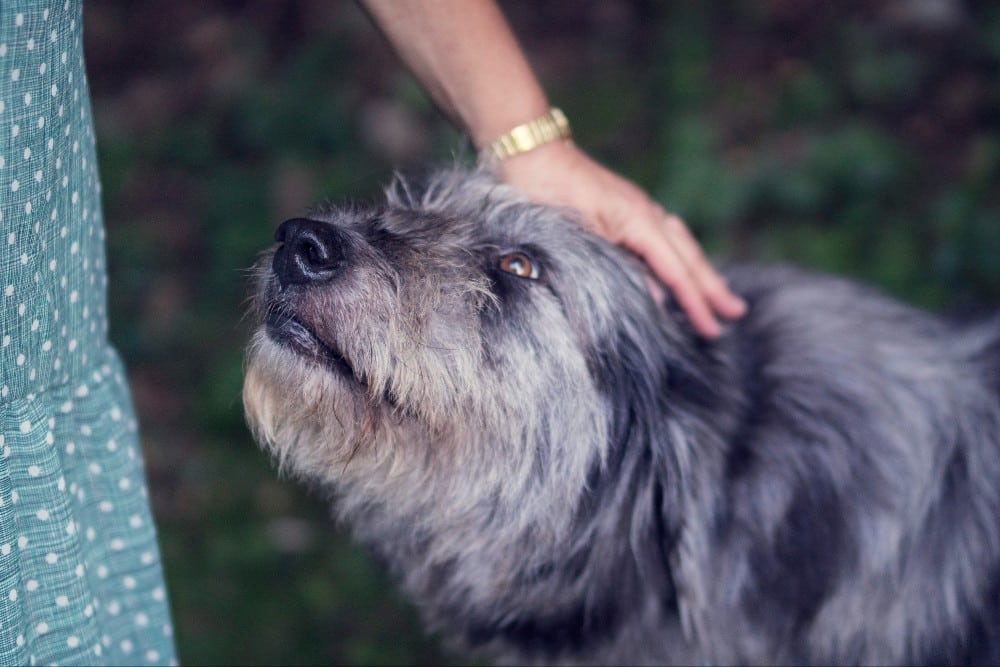A high-quality dog diet includes the essential vitamins and minerals your canine companion needs to thrive.
While many commercial dog food brands tout the phrase “complete and balanced nutrition” on their labels, when cooked or heat processed, the food loses some of its natural nutrients (meaning synthetic vitamins are sprayed on to add nutrition). On the flip side, homemade dog food may lack adequate vitamins and other nutrients, because it can be challenging to make a balanced meal.
To help ensure your pup is getting the vital vitamins your dog body needs, we’ve put together an extensive list of the top essential vitamins for dogs, their nutritional benefits, and how to properly infuse them into your dog’s daily diet, if needed.
Related: 5 Essential Trace Minerals Every Dog Needs
What Are Vitamins?
Vitamins are organic compounds that every organism needs to stay healthy. Most of the vitamins a body needs come from foods as the body either produces very little or does not produce them at all. Different vitamins help with different roles in the body.
Six vitamins dogs needs are:
- Vitamin A
- Vitamin B family
- Vitamin C
- Vitamin D
- Vitamin E
- Vitamin K
In addition to these six vitamins, your pooch needs sufficient daily amounts of choline, essential minerals, protein, fats, carbohydrates, and water to stay healthy and fend off diseases.
Let’s further explore the six vitamins your dog needs.
1. Vitamin A
Vitamin A is a fat-soluble (meaning it can be stored in the fatty tissues) vitamin that supports bone growth, vision, reproduction, cell function, and immunity in dogs. This vitamin helps to promote weight loss, promote skin and eye health, and fights certain diseases.
If your pet does not receive enough vitamin A, he can suffer from vitamin A deficiency, which can lead to serious health issues, including corneal disorders, skin lesions, respiratory issues, and higher susceptibility to infections.
Too much vitamin A can lead to joint pain, dehydration, and blood vessel issues.
Good sources of vitamin A for dogs include fish oil, eggs, carrots, and spinach.
2. Vitamin B Family
The vitamin B family plays a critical role in your dog’s health. The B vitamin group includes:
- B6: Responsible for nervous system and red blood cell function, hormone regulation, and immune response
- Folic acids: Helps with mitochondrial protein synthesis
- Pantothenic acid: Aids in energy metabolism
- Riboflavin, niacin, and B12: Boosts enzyme function
- Thiamine: Regulates energy
Vitamin B deficiency in dogs can lead to a whole host of issues, including weight loss, diarrhea, damage to the nervous system, anemia, and seizures.
Vitamin B can be found in whole grains, including brown rice, green veggies, and beans.
Related: The Top Googled Health Issues for Dogs — and How to Treat Them
3. Vitamin C
A crucial antioxidant, vitamin C removes harmful free radicals in your dog’s body, helping to reduce inflammation. It can also help boost the immune system to fight off sickness.
Though canines produce vitamin C in their livers, supplementations may be needed in certain circumstances. Vitamin C is found is fruits and vegetables.
4. Vitamin D
Vitamin D strengthens bones and teeth and helps balance minerals, like calcium. Without enough vitamin D, dogs won’t be able to maintain healthy bones and lose muscle tone. Pups could also suffer from rickets and exhaustion.
Dogs that consume certain pest-killing chemicals or human vitamin D supplements can be poisoned. Signs of vitamin D poisoning include loss of appetite, excess drooling, and more drinking and urinating than normal. Call your vet right away if you think your dog has vitamin D poisoning.
Good sources of vitamin D for dogs include egg yolk, cottage cheese, beef, fish oil, and plenty of sunshine. However, excessive amounts of this vitamin can be toxic.
5. Vitamin E
A powerful antioxidant, vitamin E helps protect your dog against oxidative damage. It is also important for fat metabolism, cell function, and skin and eye health.
Deficiencies can cause muscle, skeletal, and eye deterioration along with reproductive issues.
Vitamin E is found in kale and other leafy grains, whole grains, and chia seeds.
6. Vitamin K
This vitamin helps with aid in proper blood clotting, which keeps bones strong. Deficiencies could result in excessive bleeding and death. The fat-soluble vitamin can be found in leafy greens and fish.
Should I Give My Dog Vitamin Supplements?
While your dog will get most of his vitamins from his regular dog food (and some dog-friendly people food), some pets can benefit from dog vitamin supplements. For example, dogs that are nervous may benefit from extra thiamine, a B-complex vitamin that is know as the “anti-stress vitamin,” due to its calming effect on the central nervous system. Or dogs with itchy skin may need an extra boost of vitamin E, which helps neutralize free radicals that could damage skin. And for those suffering from joint and hip issues, vitamin C may support a healthy immune and inflammatory response.
Related: The Lowdown on Your Dog’s Itchy Skin and Dry Coat
Always consult with your vet before putting your dog on a supplement plan.
From healthy bones to great vision, vitamins are crucial for a happy, healthy dog.













